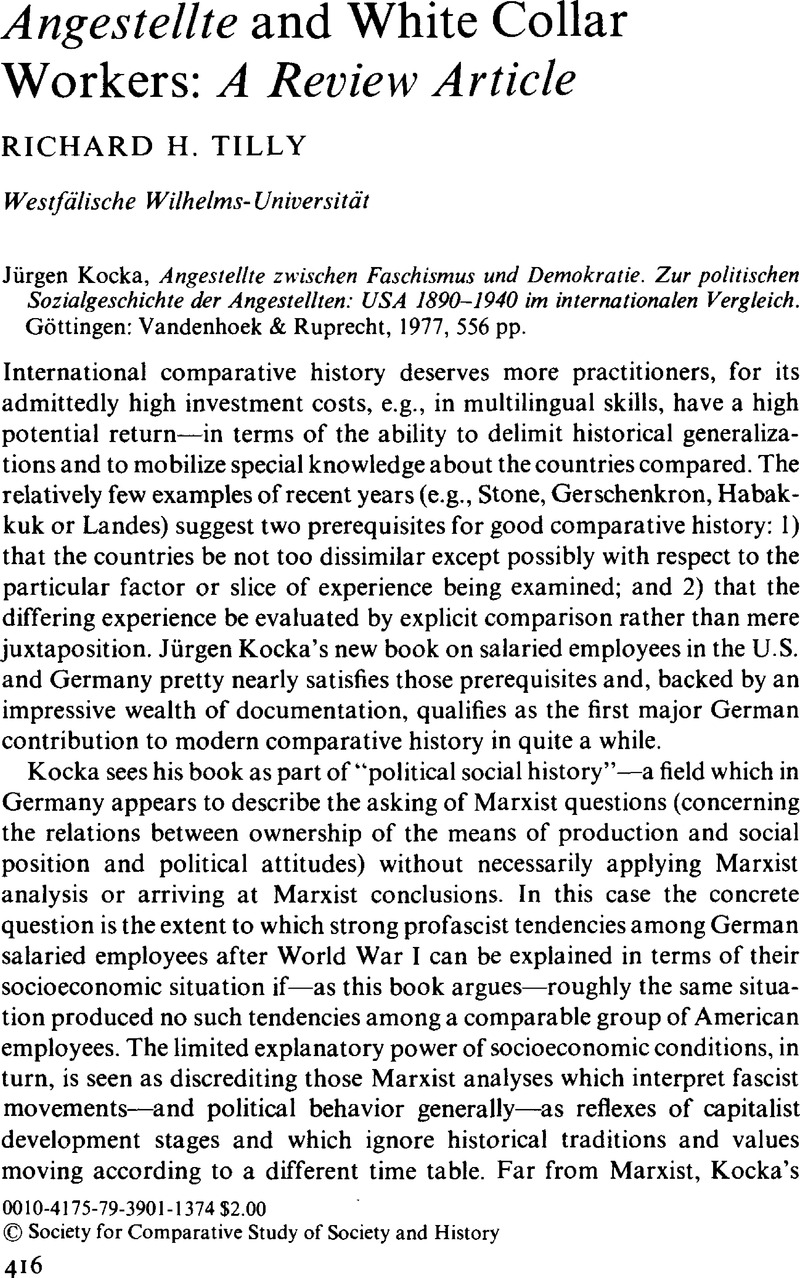No CrossRef data available.
Published online by Cambridge University Press: 03 June 2009

1 E.g., Kocka, J., Unternehmensverwaltung und Angestelltenschaft am BeispielSiemens 1847 bis 1914 (Stuttgart: Klett Verlag, 1969),Google Scholar and “Zur Problematik der deutschen Angestellten, 1914–33” in Mommsen, H., Petzina, D. and Weisbrod, B., eds., Industrielles System und politische Entwicklung in der Weimarer Republik (Düsseldorf: Drost Verlag 1974), pp. 792–811.Google Scholar
2 Unsettled is the question of commissions as a portion of retailers' incomes and the extent to which the size distribution of retail employment by firm was comparable in both countries. Given the importance of large firms in consumption goods production and distribution in the U.S. there was probably quite a difference here. See, e.g., Chandler, A., The Visible Hand. The Managerial Revolution in American Business (Cambridge, Mass.Belknap Press, 1977), esp. chapters 7 and 11.Google Scholar
3 This was true to some extent in large American enterprises as well, but it is a fundamental piece of Kocka's analysis that the economic logic of large-scale enterprise operations forced rationalization and partially contradicted the claims of Angestellte for special treatment. This could only have major repercussions where salaried employees maintained status pretensions, as in Germany. This point is developed most fully in Kocka's previous book on the Angestellten, cited above. See esp. pp. 556–59.